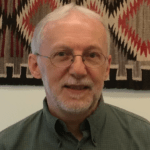
This is the second blog post exploring how foundations view and intentionally use their power.

Douglas Easterling, Ph.D.
Wake Forest School of Medicine
K. Jehan Benton-Clark, M.S.W.
Colorado Health Foundation
The killings of George Floyd, Ahmaud Arbery, and Breonna Taylor have energized foundations across the U.S. to publicly declare their commitment to racial equity. The critical question is how fully these foundations will act on their commitments. Will they deliberately use their resources, reputation and influence to push for meaningful institutional and social change?
Like many health foundations, the Colorado Health Foundation (CHF) has been wrestling with the question of how it should use its power to advance health equity. The foundation has committed itself to remedying “unnecessary, avoidable, unfair, unjust, or systemically-caused differences in health status.” It also adopted the cornerstone principle to “serve Coloradans who have low income and have historically had less power and privilege.”
Prodding Organizations to be More Inclusive
To act on this principle, CHF has not shied away from using its power to induce changes in thinking, behavior, and structure among people and organizations within its sphere of influence. This involves incorporating equity-related milestones into grant agreements to encourage organizational leaders to pay serious attention to diversifying their staff, board, and engagement practices. Sometimes these milestones provide the executive director with leverage to convince the board to follow through on commitments to shift organizational practice.
One tactic that the foundation has found to be particularly useful is to decline a grant proposal, but also engage the applicant in a deeper conversation about equity. This is referred to as the “strategic no.” It often leads to a stronger proposal which allows the foundation to invest in more impactful equity work.
Long-term relationships with ongoing back-and-forth are critical when foundations exercise their power with grant-seekers (see August 6th blog post). CHF practices this form of engagement as a means of advancing equity. For example, in Eagle County, program officers entered into repeated discussion with leaders of a large behavioral health agency regarding the unmet needs of the local Latinx community. Those discussions, combined with the prospect of a large grant, prompted the agency to take a serious look at expanding and reorienting its services for Latinx residents. The program officers also brokered connections with local Latinx leaders who assisted the agency in developing culturally appropriate services.
Supporting Others in Exercising Their Own Power
On the one hand, it is a sign of progress that foundations are using their power to challenge institutions to face up to racism and become more inclusive and responsive. On the other hand, equity-oriented foundations need to do more than act on behalf of people who have been historically disenfranchised.
To truly advance equity, foundations must also use their resources, reputation, and power to create more opportunities for those who have been held back from exercising their own power.
CHF is stepping into this responsibility by dedicating an increasing portion of its resources to social-justice organizations led by people of color. That support includes assistance setting up administrative and financial systems, as well as providing guidance on how to grow their organizations at an appropriate rate—an issue that has become particularly important as more donors have directed funds to social justice groups in the wake of this year’s racial reckoning.
As CHF has built deeper relationships with these organizations, new opportunities for support have emerged. For example, the foundation learned that a number of people of color who are leading nonprofit organizations in the Denver Metro area had created a fellowship program to help one another navigate the challenges they face, especially racial discrimination and inequities in access to resources. This fellowship program, called Transformative Leadership for Change (TLC), provides an intensive, culturally relevant leadership experience, focusing on “soft skills,” leadership, healing, connection, and personal development. The foundation recognized the importance of TLC in helping organizations led by people of color reach their full potential and exercise their power. It has provided grants, evaluation consultation, visibility, and connections to other funders.
This support of TLC would be regarded as “building power” within the Power Moves framework. We have purposefully avoided this terminology. It implies that foundations are bringing power to people who don’t have it; while our experience tells us that communities of color are replete with skills, leadership, wisdom, and social capital. These are core ingredients of power. What these groups often lack are opportunities to exercise their power. This is where foundations can use their resources, position, and reputation to add value—by raising the profile and credibility of people who have been shut out of leadership positions, by connecting them to institutions and political structures, and by offering opportunities to learn how to succeed in realms where they don’t have previous experience. For these efforts to be effective, foundations will need to invest their reputational capital in ways that might cause discomfort among some staff and board.
Shifting the Distribution of Power
According to the World Health Organization, disparities in health and well-being stem from inequities in resources and opportunity, which in turn stem from inequities in power. Foundations are near the top of the pyramid when it comes to power. They are privileged institutions with limited accountability. They have the power to pick winners and losers when they make funding decisions. They are granted a seat at important tables, many of which they convene around their own interests.
Foundations demonstrate their power whenever they decide to set new strategic priorities, fund different groups, or engage with partners in new ways. The dramatic uptick in the number of foundations adopting equity as a core principle can be seen as one more instance of foundations exercising their power to pick and choose their focus of attention.
However, foundations that assist grassroots groups in exercising their power will likely experience disruptions in their own power. How will foundations respond when they are challenged by groups who are on the front lines doing the social justice work that equity demands? This is a question that the Colorado Health Foundation is currently living through.
To the extent that foundations are open to learning from these groups, they will be able to strengthen their strategies and increase their impacts. By letting go some of their control-oriented power, foundations may significantly increase a higher form of power—the power to achieve the goals that matter most to them and to their constituents.

